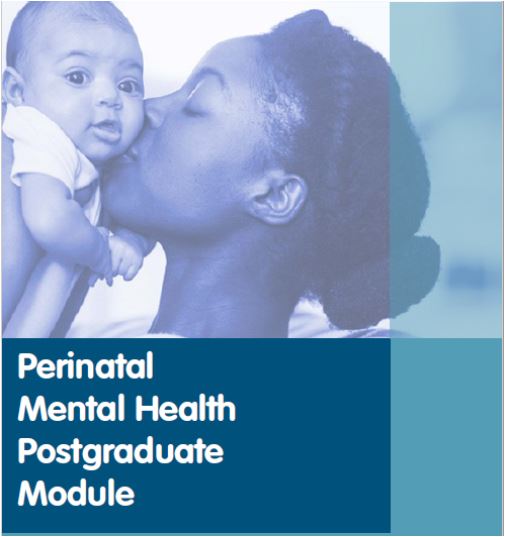
New specialist perinatal mental health postgraduate module launches nationally
A new postgraduate module in perinatal mental health has been launched aimed at enhancing the skills of people who work and train in perinatal health teams, caring for women with mental health conditions, their partners, and infants from pre-conception to 24 months after birth.
Commissioned by Health Education England (HEE), the first 20-week module will be delivered by the Tavistock and Portman NHS Foundation Trust to a wider group of 120 non-medical health and care professionals working in specialist community and inpatient perinatal mental health services, or who have specialist roles within allied services, such as maternity and health visiting. This includes:
- registered nurses
- psychologists
- psychotherapists
- occupational therapists
- social workers
- nursery nurses
- specialist perinatal mental health midwives
- specialist perinatal mental health visitors

The module has a strong focus on reflective practice and resilience building so participants can develop the skills required to manage the complex dynamics of decision-making and communication. The training aims to link together contemporary academic learning and the experience of clinical practice.
The learning will support the NHS Long Term Plan ambition to ensure at least 66,000 women can access specialist perinatal mental health services during the perinatal period by 2023/24.
Brian Rock, Dean of Postgraduate Studies at the Tavistock and Portman NHS Foundation Trust, said:
“We’re very grateful to Health Education England for commissioning this much-needed specialist module in perinatal mental health. We know that perinatal mental illness affects more than 20% of new and expectant mothers, yet many healthcare professionals have not had access to training in the specialist knowledge and skills needed to support this patient group. This module fills that gap and equips clinicians with the confidence and skills to provide excellent care to perinatal women and their families.”
Lucinda Green, Perinatal Consultant Psychiatrist involved in delivering the training, said:
‘’It has been a real privilege to have the opportunity to be involved in developing this new course which is designed for experienced perinatal clinicians from a range of disciplines. There is a strong emphasis on applying learning to enhance clinical skills, to improve professionals’ confidence in caring for women with complex difficulties and on compassionate leadership approaches. I am looking forward to teaching clinicians from all areas of England when the course starts in September. We hope that the learning from the course will benefit the clinicians who attend, their teams and most importantly the women, partners and families under the care of perinatal mental health services’’.
Rebecca Burgess- Dawson, National Clinical Lead (Mental Health), Health Education England, said:
“This is a vital piece of learning, identified by Health Education England as meeting the needs of healthcare professionals who needed to expand and consolidate their knowledge in specialist perinatal mental health.
“The opportunity to network and collaborate in an online learning programme with other specialist practitioners and share knowledge is a wonderful part of the curriculum we commissioned.
“It has been designed and developed with experts in the field. We’re looking forward to receiving feedback as the course progresses, as we have an eager and passionate workforce looking to engage in this type of educational programme.”
Kate, Specialist Perinatal Mental Health Midwife, said:
“I am so excited to be given a place on this course, the perinatal mental health module is key in bridging the gap between mental health and midwifery. It will help ensure that women and their families will have safe and effective mental health care.”
Kath, Nursery Nurse, said:
“As a nursery nurse on an inpatient mother and baby unit I have seen that there has been a gap in training. I am excited for this opportunity to acknowledge my experience, learn more and to have something on my CV that is Perinatal focussed for future roles I may have.’’
The Tavistock and Portman are very pleased to able to continue their partnership with Health Education England following their previous work together on the development of the Perinatal Mental Health Competency Framework and look forward to sharing the students’ feedback.
Interested in learning more?
Perinatal, child, adolescent and family work: a psychoanalytic observational approach (M7) is our two-year Master’s degree that offers deep insights into human development and emotional dynamics – supporting students to explore the earliest stages of life via infant observation, work discussion, and study of the latest child development research, together with key psychoanalytic concepts and texts.